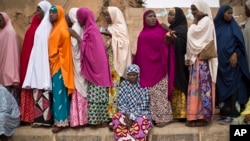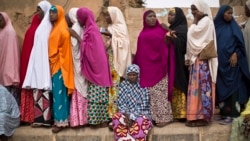The ballots are being counted in Nigeria following a largely peaceful and orderly weekend vote in national elections. Millions of voters turned out and waited patiently for hours March 28 to let their voices be heard, despite technical glitches, some confusion and isolated attacks by the terrorist group Boko Haram. Approximately 300 of some 120,000 polling stations reopened the next day to complete the process.
Whoever the voters have chosen as Nigeria’s next president – the incumbent Goodluck Jonathan or former Head of State Muhammadu Buhari – will help set the future course of Africa’s most populous country and leading economy. The United States is committed to working with the next democratically elected government of Nigeria that results from this vote.
It is critically important that all parties to remain calm and not resort to violence as the results are tabulated and reported. Postelection violence in 2011 left more than 800 people dead across the country. President Jonathan and General Buhari made public pledges to condemn election-related violence, and they reaffirmed those commitments in a second peace accord March 26.
The United States welcomes the vote and the respect shown in it for democratic principles. The Nigerian people have shown a commendable determination to register their vote and choose their leaders.
Even without evidence of systemic manipulation of the process so far, observers have noted indications that the collation process -- where the votes are finally counted -- may be subject to deliberate political interference. This would contravene the letter and spirit of the Abuja Accord, to which both major parties committed themselves.
The Government of the United States would be very concerned by any attempts to interfere with the electoral process or to undermine the independence of the Electoral Commission or its chairman, or in any way distort the expressed will of the Nigerian people.














